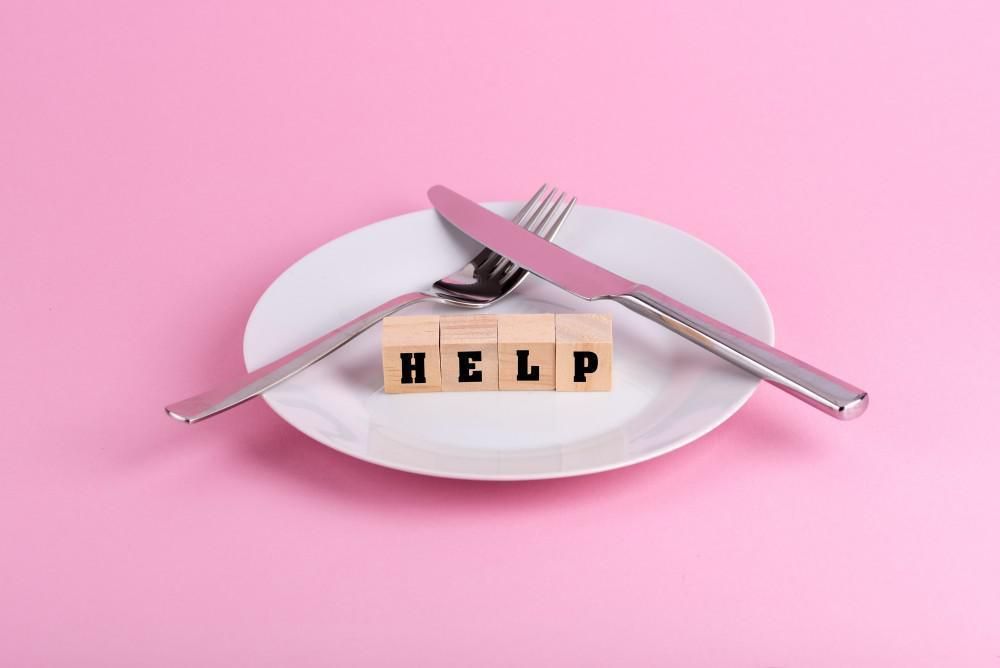Many of us struggle with our weight or body image at some point in our lives. Wanting to lose a few pounds is definitely okay, as long as you do it in a healthy manner. However, if you’re at the point where you’re starving yourself or making yourself throw up to lose weight, you’ve probably crossed into the world of eating disorders.
At Carolina Wellness Psychiatry, our providers help you understand why you’re dealing with this type of disorder. Our three board-certified psychiatrists get you the specific treatment you need to overcome your eating disorder, including the difficult task of overcoming problems with body image, and give you lifestyle changes to help you lead a healthy life.
Common eating disorders
Eating disorders are a very serious, and sometimes life-threatening, mental health disorder. If you’re suffering from one of these disorders, you should know that it isn’t a choice, but rather a serious medical condition. There are three common types of eating disorders:
1. Anorexia nervosa
This eating disorder is marked by an exaggerated fear of being fat or gaining weight. If you suffer from this disorder, you may look in the mirror and see yourself as very overweight, even if your body is emaciated. Anorexia makes you take extreme measures to stay thin, including starving yourself and exercising excessively.
Along with severely limiting your diet, you may also turn to using other methods to lose weight such as diet pills or laxatives. These can have marked implications on your health, and can, in severe cases, be fatal. With this disorder, all you can see is an overweight person, which leads to lack of nutrition and can result in depression and suicidal ideations.
2. Bulimia nervosa
Bulimia is another form of eating disorder that’s similar to anorexia in that you have a distorted image of your body, and intense fear of gaining any weight. However, with bulimia, you have trouble controlling your urge to eat, which leads to you binging on food, and then purging to get rid of it because of guilt.
With bulimia, you might be very restrictive of your diet during the day, which can lead to binging later on. You may make yourself vomit to get rid of all of the calories that you just ate. Bulimia also can make you exercise incessantly in an effort to lose as much weight as possible. Because of lack of control and judgement, bulimia may lead you to use laxatives or other diet aids to cut the pounds.
3. Binge-eating disorder
Although this eating disorder is very similar to bulimia in the fact that it causes you to eat large portions of food in a very small amount of time, it doesn’t involve vomiting or over-exercising to rid yourself of the calories. This disorder also involves a lack of self-control over eating, and often you may continue to eat even after you’re very full.
Binging is often accompanied by feelings of shame and guilt. This may cause you to eat by yourself, so you can hide how much food you’re eating at one time. You may feel embarrassed that you lack the self-control to stop eating, even though you aren’t hungry. It can lead to very serious health conditions.
Health problems associated with eating disorders
Eating disorders don’t just affect your weight and body image; they can also affect the way your body works and the organs within your body. Each type of eating disorder has different consequences on your body, because they’re different from each other. The following is a list of health problems caused by these disorders categorized by bodily system.
Cardiovascular
- Heart failure
- Muscle breakdown
- Electrolyte imbalance
- Decreased metabolic rate
- Irregular heartbeat
- Low or high blood pressure
- Anemia
Gastrointestinal
- Stomach pain
- Diabetes
- Low blood sugar
- Stomach rupture
- Esophageal rupture
- Bowel obstructions
- Esophageal cancer
- Pancreatitis
Neurological
- Seizures
- Difficulty sleeping
- Dizziness or fainting
- Sleep apnea
- High risk of suicide
- Depression
Endocrine
- Osteopenia or osteoporosis
- Infertility
- Liver damage
- Thyroid problems
- Type 2 diabetes
- High cholesterol
Along with the above medical problems, you can also develop other mental health problems, including post traumatic stress disorder, self-harm, and obsessive compulsive disorder. Dental problems are also a consequence of bulimia and anorexia.
These health complications can be severe. Cardiac complications can lead to chest pain or sudden death due to malnutrition. If you or someone you know is showing signs of an eating disorder, get help as soon as possible to avoid permanent health issues.
Eating disorders aren’t something we take lightly. If you’re suffering, call our office today at 919-446-3232, or request an appointment using our online booking tool.




